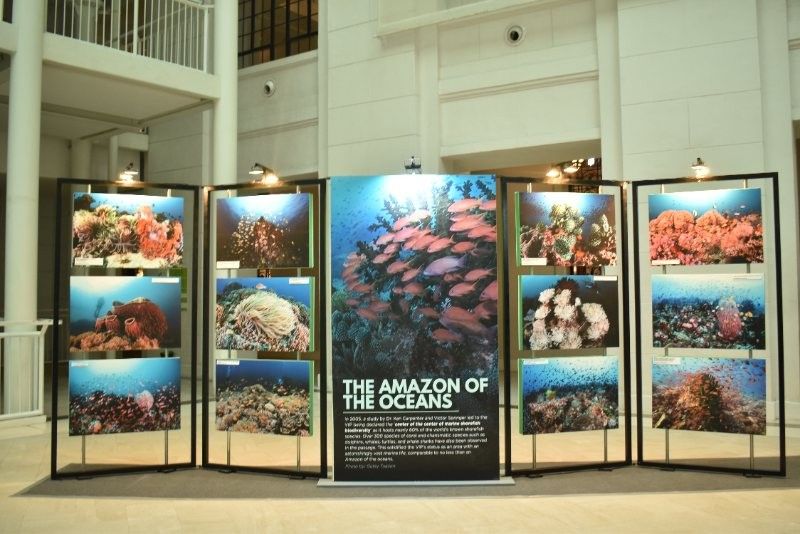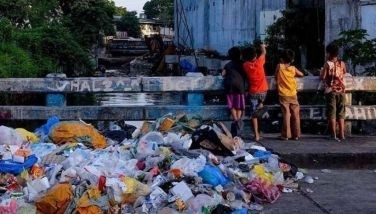Online petition urges legal protection for biodiversity-rich Verde Island Passage

MANILA, Philippines — Groups launched an online petition calling on the Philippine government to declare the Verde Island Passage a legislated protected seascape in order to better manage the biodiversity-rich marine area.
Green groups and experts said that legally protecting VIP through the Expanded National Integrated Protected Areas System Act would benefit not only the marine corridor's biodiversity and fishermen but also scientists studying the area.
The petition launched by the Protect VIP coalition urged for a legal protection that empowers fisherfolk and local communities to participate in the management and protection of the area.
VIP is a marine corridor located between the provinces of Batangas, Oriental and Occidental Mindoro, Romblon and Marinduque. Home to 60% of all known shore fish species and over 300 coral species, it is dubbed by scientists as the “center of the center” of the world’s marine biodiversity.
Its rich biodiversity provides food and livelihood to two million Filipinos.
Despite its significance, VIP is under threat from pollution from industrial activities in its vicinity, illegal, unreported and unregulated fishing, destructive coastal developments, and impacts of the climate crisis.
The oil spill off Oriental Mindoro earlier this year posed risks to the marine corridor.
“The Verde Island Passage is an ecological treasure, and must thus be afforded the greatest possible protection by law,” the petition read.
The call was made public at the launch of an exhibit featuring photographs of VIP at the National Museum Monday.
‘Good for fishers, scientists’
Katherine Escalona, an associate professor at the Mindoro State University, said that legally protecting VIP will be beneficial not only for fishers, but it will also be “good for the species, good for tourism, and good for science.” She noted that there are still many unknown species in the marine corridor that can be studied.
But Escalona emphasized that alternative livelihood sources for fishers must be created if VIP is declared a protected seascape under the ENIPAS Act.
“There are a lot of offshore sites with great reefs, and those are the traditional fishing grounds of fishers. When you close them, where will they fish?” she told Philstar.com in Filipino on the sidelines of a summit in Batangas last September.
Jayvee Saco, the project leader of VIP Center for Oceanographic Research and Aquatic Life Science at the Batangas State University, also told Philstar.com that efforts of fishers, scientists and policymakers must be streamlined to protect the marine area better.
Enforcement of laws
Environment Secretary Maria Antonia Loyzaga said in May that legally protecting VIP will keep it a sanctuary for thousands of marine species and make it off-limits to activities that threaten its ecosystems.
In September, Marcial Amaro, director of the environment department’s Biodiversity Management Bureau, said the DENR is leading the push to declare VIP as a legally protected seascape. He, however, stressed that all relevant agencies must agree with the proposal.
“But I guess we’re all in agreement that the VIP needs to be protected and hopefully under ENIPAS Act or other means that would provide for enforcement of laws within the area and substantial increase in budget allocation to indeed address the conservation and and protection requirements of the rich marine biodiversity,” Amaro said.
“Protecting VIP translates into safeguarding the country’s fisheries and coastal environment,” he added, noting that whatever happens in VIP affects areas outside the marine corridor.
- Latest






























